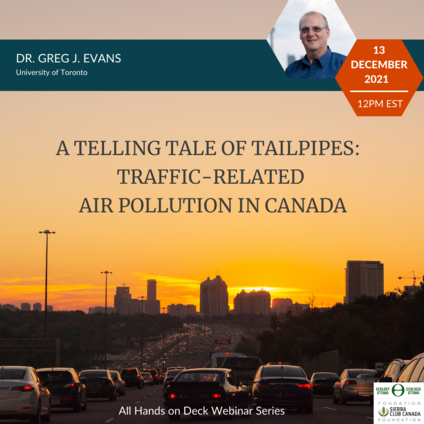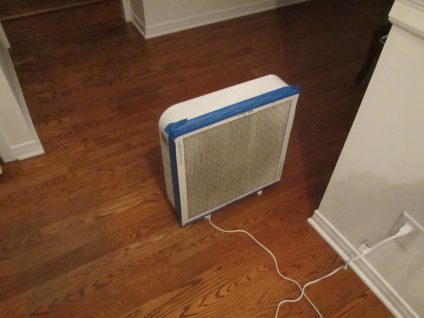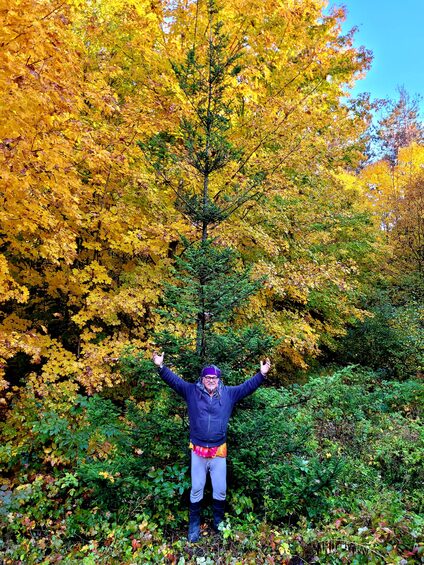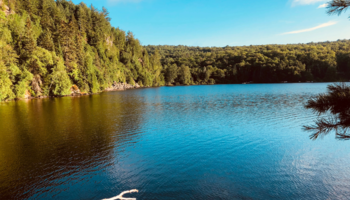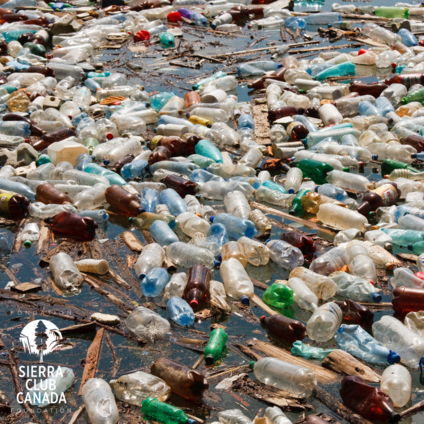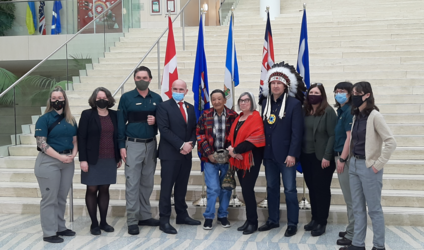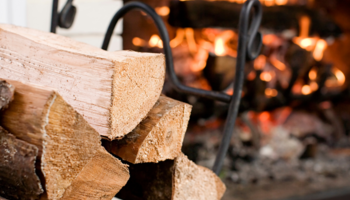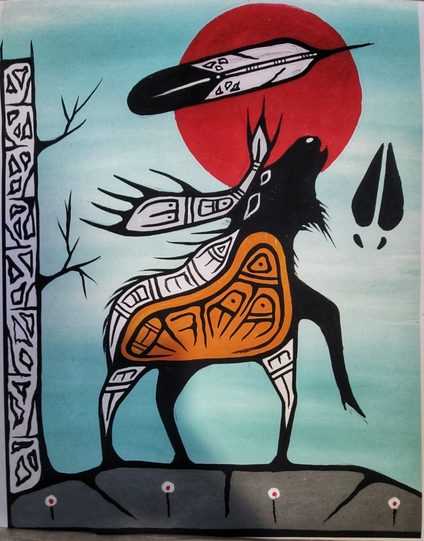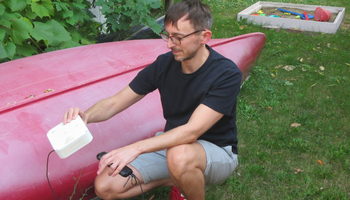Human health is intimately connected to the health of the planet. We need fresh water, clean oceans, and natural spaces that contain a rich array of animals, insects and plants. Promoting education about and recreation in our natural spaces has been a part of the Sierra Club philosophy since it was founded in 1892.
Health & Wellbeing
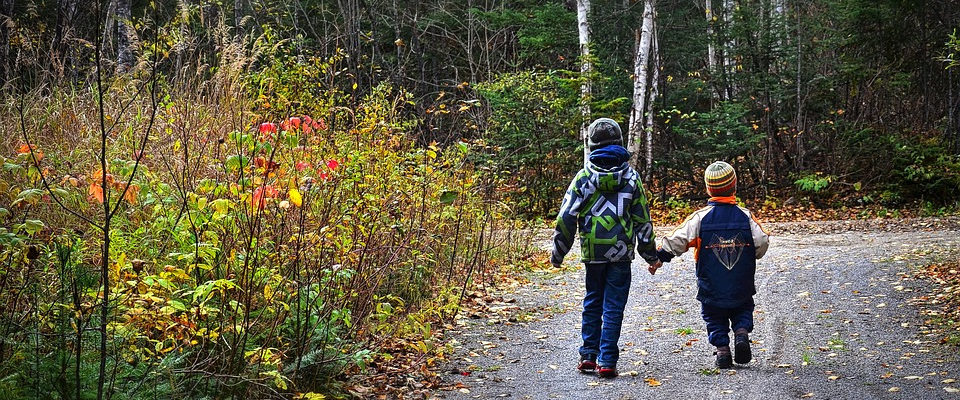
Health & Wellbeing
Webinar: Eco-anxiety, eco-grief, and solastalgia - approaches for activists
Posted on September 10, 2021In this webinar, we will explore emotional responses to environmental collapse, improve our understanding of cultural histories of environmental movements, and explore strategies that communities have developed and are using to manage heavy emotions in their work and mobilize emotion toward positive community-building.
We will explore how our heavy emotional responses to the climate crisis can undermine collective environmental movements, and how we can instead mobilize them effectively to develop a more open, more dynamic activist culture focused on collective action in mutual recognition. Join us!
Speaker:
Dr. Jennifer Baker is the Vice President of the Sierra Club Canada Foundation, a poet, and an Professor in the Department of English at the University of Ottawa, where her research interests include the cultural history of agriculture in Canada, environmental history, literature and the environment, cultural studies, and Canadian poetry and poetics. Passionately committed to knowledge mobilization, she has spoken widely in the field of environmental humanities and was one of the founding speakers on eco-anxiety at the Sustainable Events Forum. Her first chapbook, Abject Lessons, was published in 2014 by above/ground press and her creative writing, essays, and reviews have appeared in various literary publications including Dusie, Ottawater, The Bull Calf, The Journal of Canadian Poetry, and Canadian Literature. Her second chapbook, Groundling, is forthcoming from Trainwreck Press (2021).
Breathe Easy

Do YOU know the quality of air you breathe? Many people do not.
Air quality (AQ) and its impacts are rarely discussed. It remains a silent killer.
Breathe Easy is looking to change that.
Healing land and people: native plants, pollinators, and food
Posted on May 21, 2021Habitat loss, species decline, climate change, food insecurity, and even mental health are all connected by one common thread; the need for change in our agricultural system. With complexities around inequity, corporatization, transport and more, the monolith of the global agroeconomy is far too large to take on in its entirety. But that’s not what this talk is about; let’s chat about something you CAN do to make a positive change in this system. We need more hands to pick, pluck, plant and spread native plants across Canada. Join me, Junaid Shahzad Khan, on a journey into the world of native plants and the solutions their revival can hold for us and our non-human friends.
Thursday, May 27th, 2021 for 40 minutes at 6:30pm Eastern / 7:30pm Atlantic / 3:30pm Pacific
The speaker: Junaid Shahzad Khan is an ecologist and educator who works with Pollinator Partnership Canada, Birds Canada, University of British Columbia, University of Guelph, and a network of grass-roots land activists to help regenerate habitat and communities across southern Ontario. Junaid has created easy-to-follow and accessible courses to help people of all knowledge levels learn about the wonderful world of habitat creation. His most recent course, At Home with Birds can be found at https://www.udemy.com/course/at-home-with-birds/
Celebrating Clean Air Day in the Apocalypse
By Jake Cole — June 7, 2023What are our health authorities telling us? Not a lot. They should be doing more. Based on what I know about air pollution, people should not be spending any time outdoors right now unless they absolutely have to. And if you have to go outside you should get out one of your Covid masks to wear when you're out there.
The Morvan Road Landfill and its impacts on the African Nova Scotian Community
Megan Cormier — November 16, 2022When speaking of environmental racism, Ingrid Waldon said that "for those who argue that environmental racism is an issue of class and not race, I maintain [...] Race makes class hurt more” (Tillerman, et al., 2003, p.68). In Canada, people of African descent have been disproportionately impacted by environmental hazards, such as toxic air pollution, due to industrialization and colonisation, forcing Black communities into hierarchal systems of abuse and into depreciated environments.
Protecting Mother Earth and Our Future Generations
Danny Beaton, Mohawk of the Turtle Clan — November 10, 2022In Memory of Alicja Rozanska.
As a Mohawk Environmentalist I want to thank CUPE and all of their supporters for protesting Doug Ford's Government and their negative idealism. I attended the protest on Monday November 7th and there were a good ten thousand or more CUPE Union members and citizens present to oppose Ford's Bill.
The Fight to Breathe Easy: Is Bill S-5 the Answer?
Megan Cormier — October 25, 2022Health Canada estimates that there are 15,300 premature deaths, 2.7 million asthma symptom days, and 35 million acute respiratory symptom days linked to air pollution each year. Environmental burdens in Canada are not distributed equally amongst its residents, which disproportionately fall on the most vulnerable members of society.
Breathing Easy: A privilege not granted to all
Megan Cormier — October 11, 2022In February 2022, Bill S-5 was introduced in the Senate with the goal of amending and strengthening the Canadian Environmental Protection Act, 1999 (“CEPA”). Among other things, the bill aims to amend the protection provided for vulnerable populations and establish a right to a healthy environment.
Canadian Environmental Protection is Getting Stronger, but is it Strong Enough?
Morgan Martel — August 30, 2022It’s time for Canada to ratify the Treaty on the Prohibition of Nuclear Weapons
Ole Hendrickson — June 16, 2022The Sierra Club (both in the U.S. and Canada) is part of the International Campaign to Abolish Nuclear Weapons (ICAN), winner of the 2017 Nobel Peace Prize.
The International Day for Biodiversity is on May 22nd
Jesse Paragamian — May 16, 2022Building a shared future for all life – International Day for Biodiversity 2022
Uprooting the Real Causes of Pollution
Lucy Bain — April 12, 2022Environmental racism is ingrained into the colonial systems of Canada. This is a fact. And the reality of the colonial systems we have in place disproportionately affects Black, Indigenous and other people of colour in a multitude of ways, at every level, in almost every space. That is the way colonial systems are designed.
Watch: Air Quality and Its Impact on Human Health
Posted on April 1, 2022Our Breathe Easy campaign recently hosted a webinar with Health Canada's Dr. Errol Thomson to learn about the effects of air pollution on our health
Our Journey Together to Canada’s New National Urban Parks
PearlAnn Reichwein, National Urban Parks Leader, Edmonton — March 23, 2022Our local Sierra Club Canada team was honoured to be invited to Edmonton City Hall for the recent announcement by the Honourable Randy Boissonnault, Canada’s Minister of Tourism and MP for Edmonton Centre, on behalf of the Honourable Steven Guilbeault, Minister of Environment and Climate Change and Minister responsible for Parks Canada. Minister Boissonnault formally announced the beginning of the pre-feasibility phase for a new National Urban Park proposed in the greater Edmonton area.
All Hands on Deck: A Telling Tale of Tailpipes
Posted on January 20, 2022In Canada, roughly one-third of us live near a major road. We’re surrounded by traffic everyday. We pass by throngs of cars as we walk our kids to school; we sit in gridlock traffic driving to and from work; we hear cars whizzing by our homes that are located beside major roadways. Close proximity to major roads increases our exposure to air pollution, and the health risks that come with it.
What do we know about traffic-related air pollution and what can we do about it?
Our webinar featured prominent researcher and University of Toronto professor Dr. Greg Evans. Dr. Evans’ research focuses on air pollution, and understanding its impacts on human health and the environment.
The webinar also featured emerging findings from a community-based air quality campaign, Breathe Easy. The campaign’s goal is to use citizen science to monitor local air quality and use the findings to inspire community action on air pollution.
Understanding traffic-related air pollution is a big first step to improving it - and protecting our health. Check it out below!
The holiday tradition we’d be better off without
Alma Hyslop — December 8, 2021Ring of Fire Assessment: An Assessment of Reflections From the Members of Nishnawbe Aski Nation Territory
Posted on November 29, 2021Please find the full Assessment Report attatched below.
By: Joseph Duncan and Aleksandra Spasevski.
In honour of Ringo Fiddler.
Ontario’s Far North recently received attention due to the $60 billion chromite mining potential. The massive mining project is known as the Ring of Fire. Both provincial and federal leaders have identified this mining opportunity as a multigenerational opportunity that can create both economic and societal benefits for communities (Chetkiewicz & Lintner, 2014).
Field Notes from a Citizen Scientist
Posted on November 22, 2021Breaking News: WHO Releases New Air Quality Guidelines
Jake Cole — September 27, 2021Our BreatheEasy project continues to measure air quality at different sites across the Ottawa region.
How is the air in Ottawa? Generally speaking, the air quality in our city is fairly good. However, we have also identified a number of air pollution "hot spots".

